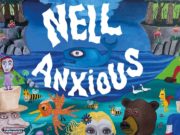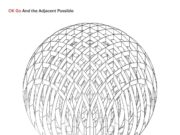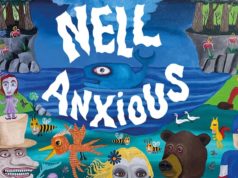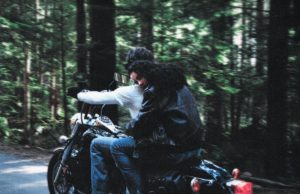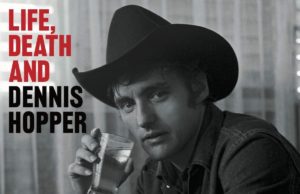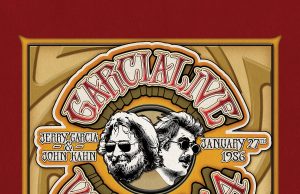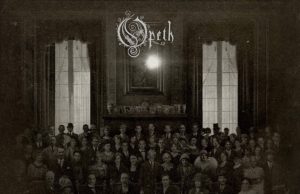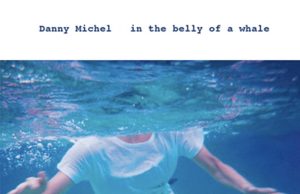Well, it’s that time of year again. The time when Canadian music lovers congregate reverently in front of their screens and devices to celebrate the greatest independent artistic achievement of the year. That’s right — it’s time to award the 47th annual Schmolaris Prize.
No, that’s not a typo. I’m not talking about that other music trophy — the one that purports to celebrate the diversity of independent Canadian music, yet somehow almost always ends with a bunch of self-important Eastern media fawning over a Toronto or Montreal artist while virtually ignoring everyone and everything west of Hamilton.

The Schmolaris Prize, thankfully, has scientifically eradicated all those biases. Founded by Steve Schmolaris in 1977, the prize is awarded annually to Manitoban musicians based solely on the whims of AI models. This year’s jury members include Chat GPT-4o, Claude 3.5 Sonnet, Gemini 1.5 Pro, and Llama 3 — all trained on 46 years’ worth of Manitoba music data, including all previous nominees and winners.
Or not.
In truth, The Schmolaris Prize might just be the semi-whimsical creation of a talented Manitoba writer who calls himself Steve Schmolaris. The author in question might spend his critical life obsessively spelunking a bottomless rabbit hole of his own making, where he crafts superbly written deep-dive reviews of Winnipeg and Manitoba albums. He might collect these colourful, thoughtful creations into his blog / website Bad Gardening Advice. And it might just be one of the best music blogs around.
Actually, there’s no doubt about that last sentence. BGA is irrefutably awesome. And Steve is hands-down the sharpest music critic in the province — if not the country — and a far better writer than I’ll ever be. So when he (with or without the help of AI) chooses the best album of the year, you should pay attention. So, without further ado, it is my honour to announce that his 47th annual Schmolaris Prize has been awarded to Sam Singer’s outstanding album Where The Rivers Do. Congratulations to Sam. Well deserved. Here’s some of what Schmolaris has to say about it:
Sam Singer
Where The Rivers Do
“Le temps est encore au soleil couchant
Les mots se perdent pendant que tu dérives
La rivière si long
Ou vous êtes.”
As we all speed toward oblivion, let us not be so alarmed; let us, instead, be cradled in the soft yet metallic hands of artificial intelligence and computation; let us let it catch us, caress us, and let us down gently. Let these new giants of civilization carry on where we left off, and let our humanity be remembered for the good it has accomplished, for the wonders it’s created, and for the love it once offered.
For the 47th annual Schmolaris Prize, I tasked my AI helpers to find that good, that wonder, that love in music. They scoured Manitoba’s musical archives for data; they compared the current nominees to previous winners, to runners-up, to the beautiful losers; they analyzed melodic patterns, rhythms, and lyrical structures. All to find that perfect album to represent this year’s Schmolaris Prize.
And, by assessing the strengths of their algorithmic accuracy (of which I can attest was very high; by combining all four models, they’ve achieved an r-squared value of 0.94), they seem to have done just that.
Of course, I, Steve Schmolaris, retain the right to overturn any such selection, but their choice (if choice is the right word) is one that aligned very well with my own. And so, it is with great pride that I announce that the 47th annual Schmolaris Prize is awarded to Sam Singer for his album Where The Rivers Do.
It’s an album that, like a river, carves itself into one’s earthly grounding; it scours one’s shores, cuts into the rocks of one’s being; slowly, at first, but then, with each repeat, the valleys it creates sink deeper and deeper. (You’ll see what I mean.) And it begins the way most great works do: with a deal with God.
Or should I say with the Sun; with whatever one’s life revolves around. (The Sun motif – with its cycles, its repetition, its predictability – is one we’ll keep coming back to, so best to bring it up now. It builds from a previously released song, Sunny, from which those opening lines in French were taken: in English, it says: “The time is still at sunset. Words are lost as you drift. The river is long. Where are you?” These lines — referencing the Sun, drifting down a river on its uncontrollable currents, and a search for someone — are expanded upon, put under a microscope, its details picked apart, on Where The Rivers Do; and it connects Sam Singer’s past, in Sunny, with his present album.
This is not the only song on Where The Rivers Do that Sam links to his previous work: Traitor Birds follows his album Don’t Mistake Me For A Lovebird. Walking — or flying — away from a lover can easily be seen as a traitorous act. [And within Traitor Birds, there are additional references to other albums; for example, take the line “They pour into the empty streets, down the dirty road, I’ll take the lonely tracks.” This motif of “the road” will be one we’ll come back to in a different context, but for now I want to make its connection to Sam’s album From The Hills, Beaten Roads, Down To The Trees.
This connection to the past — to what has already occurred — is important (as we’ll see by the album’s end); and so when Sam references these other songs and albums, he is emphasizing that one’s thoughts and deeds and loves and lovers do not happen in isolation; it is all part of a continuous journey where every effect has its cause.
And it’s this — cause and effect — that becomes central to understanding Where The Rivers Do. And that’s what we’ll focus on now.
But back to the Sun, to the deal with God, that uncaused cause, that first beautiful mover.)
What was the deal? Freedom. (This, too, links to a previous song of Singer’s: the aptly named — for our purposes — Freedom.) It’s the ability to freely choose one’s course in life, whatever that may be. God, we were told, allows for freewill to exist. And it is up to us — our choices — on how to live. And so when Singer sings “I thought we had a deal,” it is with the understanding that a promise has been broken; it is the sudden understanding that freewill is an illusion, and that one’s fate — whatever that may be, it’s impossible to know — is predestined, predetermined, preordained.
Throughout Where The Rivers Do, the Sun — or the stars — refer to this lost ideal, this lost sense of freedom and freewill, this idyllic dreamland where the sun always shines. On Traitor Birds, he sings “Sometimes I lose myself in the setting sun.” This sense of losing oneself in the darkness of a setting sun contains a sadness, a forlornness, that freewill is an illusion, and so Sam — understandably — is wistful for the days when he didn’t know of the rigidness of determinism — the causes and effects — that guides his every action. But Traitor Birds doesn’t dwell on this sadness for long; instead, it is a song of hope, a song of renewal and newness; it is a song of spring. This is why he sings “I find a piece of me in the month of June.” In this context, Sam Singer is reborn. He’s dusting off the initial disappointment, he’s cleaning himself up, he’s cutting his fingernails in preparation for a new day; a day full of new possibilities. Just because “the deal” was a false one doesn’t mean things won’t work out well for him. A good life — one full of love and kindness and every joy there is to know — is still possible. Determinism doesn’t necessarily mean a life of destitution.
And so Sam drifts — is pulled — further down the river, around another bend, another gully. He lets the currents do what they do.
To read the rest of Steve’s review and more about the Schmolaris Prize, go HERE. To check out more of Bad Gardening Advice, go HERE. To read more about Sam Singer’s Where The Rivers Do, go HERE.



